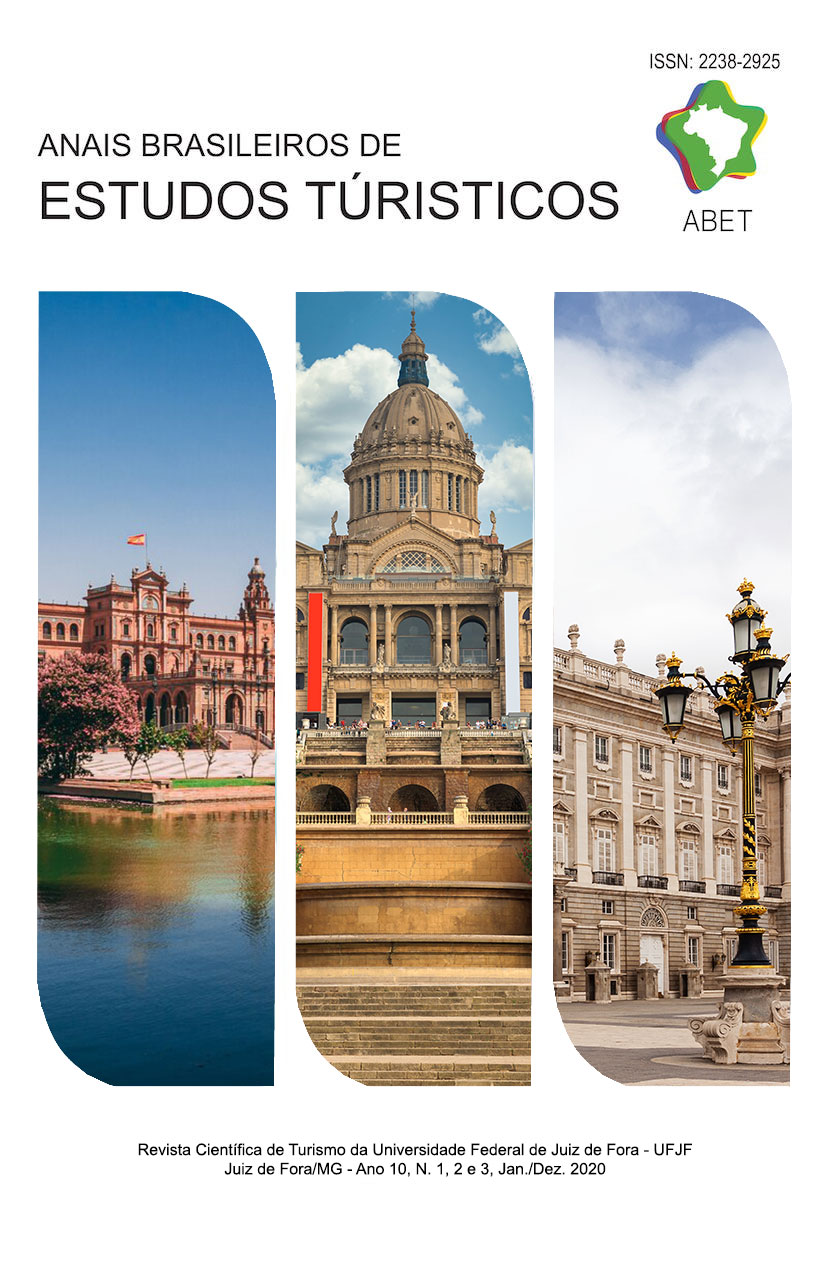Análisis cronológico del proceso de formación de la imagen turística a través de modelos teóricos
DOI:
https://doi.org/10.34019/2238-2925.2020.v10.28751Abstract
This article is the result of a bibliographical review of the proposed theoretical models of the image formation process of tourist destinations. The studies analyzed were selected according to theoretical contributions and bibliographic citations because they were used as a reference for other research. Eight selected models are presented, at the end of the theoretical review, a new model of the image formation process is proposed, considering the issue of tourist imaginaries as a starting point in the image formation process, considering the importance of the tourist's fantasy in this process. The model also points out the changes in the dynamics of travel and the perception of the destination due to the use of digital platforms, among them, the reporting of the experience in social networks and opinion blogs, as well as the search for prestige and recognition through the publication of photographs and videos.
Downloads
Downloads
Published
How to Cite
Issue
Section
License
This journal provides immediate open access to its content, following the principle that providing free scientific knowledge to the public provides greater democratization of world knowledge.
Authors must agree to the following terms relating to copyrights:
(a) Authors keep all copyright and grant the to the journal the right of first publication, with the work simultaneously licensed under the Creative Commons Attribution License that allowing job sharing with recognition of authorship of the work and initial publication in this journal.
(b) Authors are allowed to assume additional contracts separately, for non-exclusive distribution of the version of the work published in this journal (e.g. publish in institutional repository or book chapter), with recognition of authorship and initial publication in this magazine.
(c) Authors are allowed and are encouraged to publish and distribute their work online (e.g. in institutional repositories or on your personal page) since they do not do this before or during the editorial process, as this can generate productive interchange, as well as increase the impact and citation of work aired. (See Effect of Free Access).















